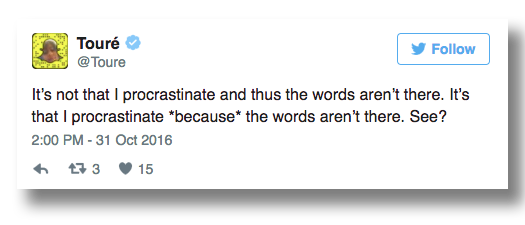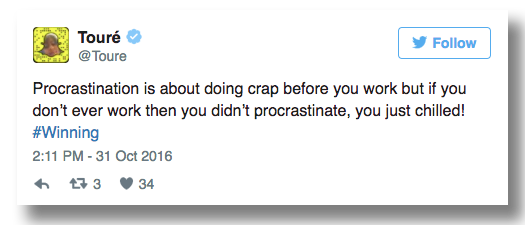“You call it procrastinating, I call it thinking.”
Aaron Sorkin
“Procrastinating is a vice when it comes to productivity, but it can be a virtue for creativity. What you see with a lot of great originals is that they are quick to start but they are slow to finish.”


